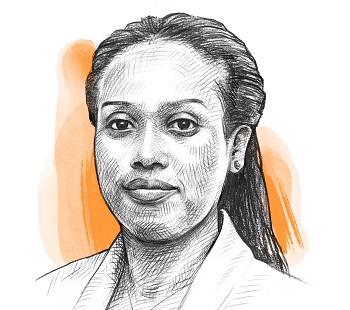Project to Support the Development of the Social Protection System in Senegal
Objective
-
€1.3mBUDGET
-
01/02/2021PROJECT START
-
24 monthsDURATION
Social protection and food security, along with health development, are the cornerstones of the fight against poverty. Access to basic health and social services for people is a priority of the national development policies in Senegal. This has led to the development of the Plan for an Emerging Senegal (PSE), a policy reference document that aims to achieve sustainable development in the country and reduce poverty through a series of medium and long-term reforms.
Set up in 2012, the mission of the General Delegation to Social Protection and National Solidarity (DGPSN) is to manage the response to the needs of the most vulnerable people for social assistance, medical assistance and emergency assistance. Through its National Social Protection Strategy (SNPS), it aims to establish an inclusive national social protection system by 2035 that is accessible to all, firmly grounded in the national culture and guaranteed by the State. It will provide everyone in Senegal with:
• A guaranteed minimum income,
• Health coverage,
• A comprehensive safety net to build the resilience of people to shocks and crises.
Developing the social protection system
The Project to Support the Development of the Social Protection System in Senegal aims to promote an integrated and harmonised vision of social protection. It has been developed based on two principles:
• Joint construction: validation of the project’s objectives and the implementation process by all the partners;
• Joint implementation: establishment of a process leading to the joint implementation of the activities defined.
The aim of the project action plan is to place DGPSN as the coordinator of the entire social protection policy in Senegal and improve the protection of the Senegalese population against socio-professional risks.
Four areas of operation
The project is based on four areas of operation corresponding to its four main objectives:
Area 1: Strengthen the governance of the social protection system
• Analysis of the existing institutional framework and formulation of recommendations;
• Assistance with the implementation of coordination and governance tools for the social protection system;
• Support for the establishment of the normative and regulatory framework;
• Strengthening of the dialogue between national stakeholders;
• Organisation of a study visit on the governance of the social protection system.
Area 2: Establishment of a reporting, monitoring and evaluation system for the social protection system
• Creation of a working group to analyse social protection data and capacity building for this group;
• Technological and functional audit of information management and data exchanges between the social protection institutions and organisations;
• Recommendations and support for the establishment of a functional data management system for the Single National Registry (RNU);
• Support for the establishment of dashboards;
• Evaluation of the impact of the various social policies;
• Organisation of a study visit on the monitoring and evaluation of the social protection system.
Area 3: Extension of social protection systems
• Development of a population projection model for a social protection system;
• Support for the extension of universal health coverage (UHC);
• Feasibility study for the introduction of a universal family allowance system;
• Support for improving care policies for people with disabilities and the elderly;
• Organisation of a study visit on the extension of social protection systems.
Area 4: Increase the resilience of Senegal’s social protection system
• Sharing of good practices to build an appropriate social response to the Covid-19 crisis;
• Consolidation of the implementation of the National Family Security Grants Programme in the context of Covid-19;
• Support for the introduction of productive inclusion programmes for the resilience of households benefiting from the National Family Security Grants Programme;
• Development of social protection systems able to provide a response to external crises.


